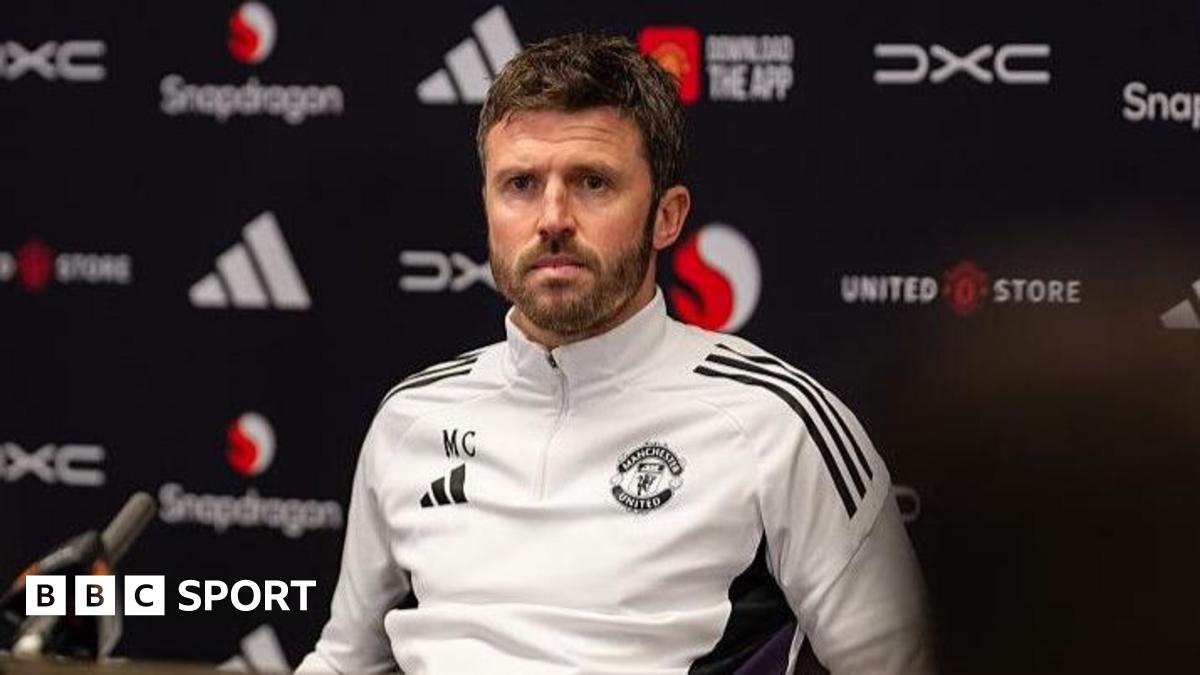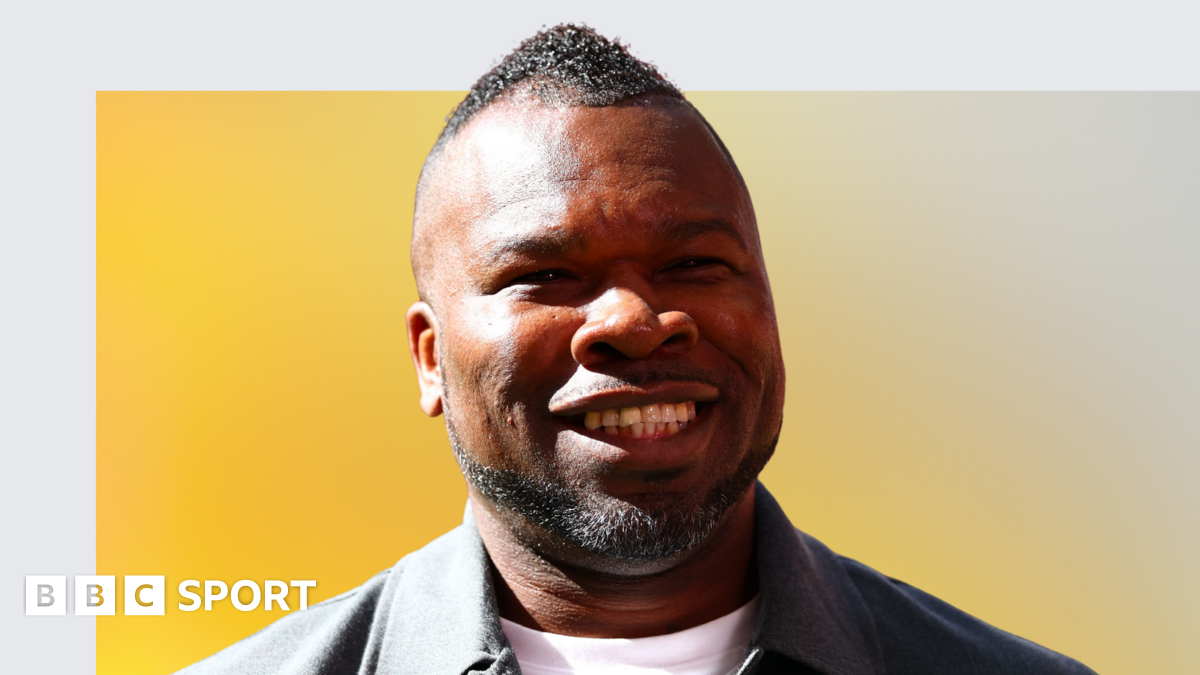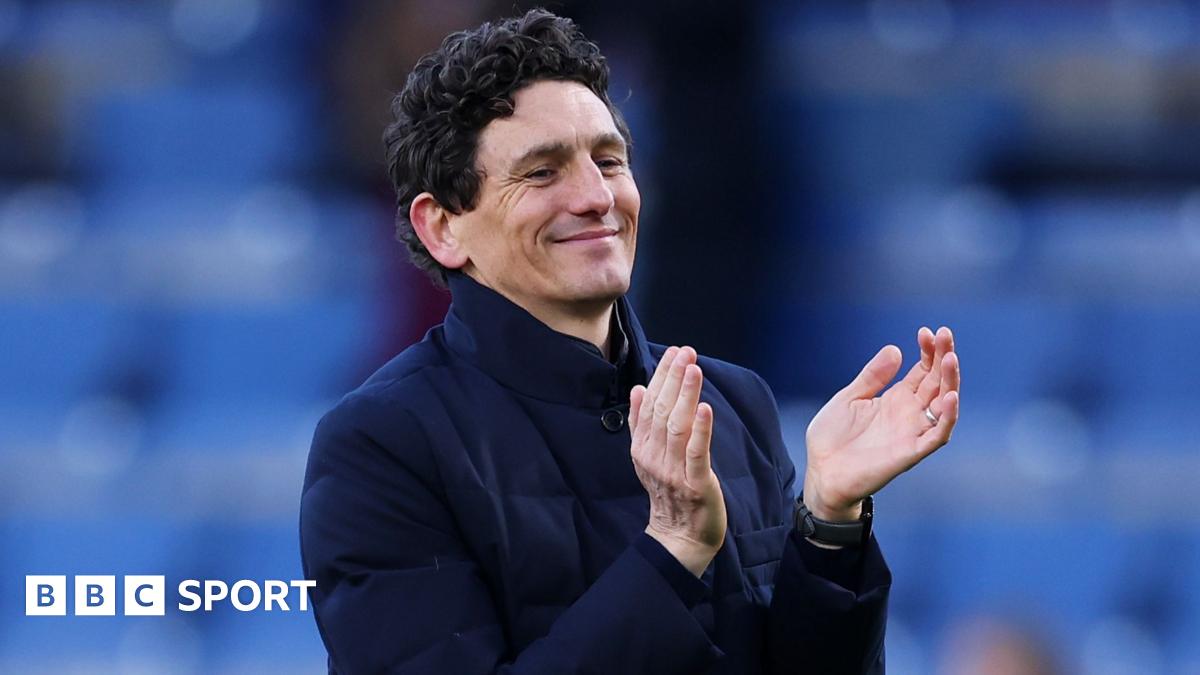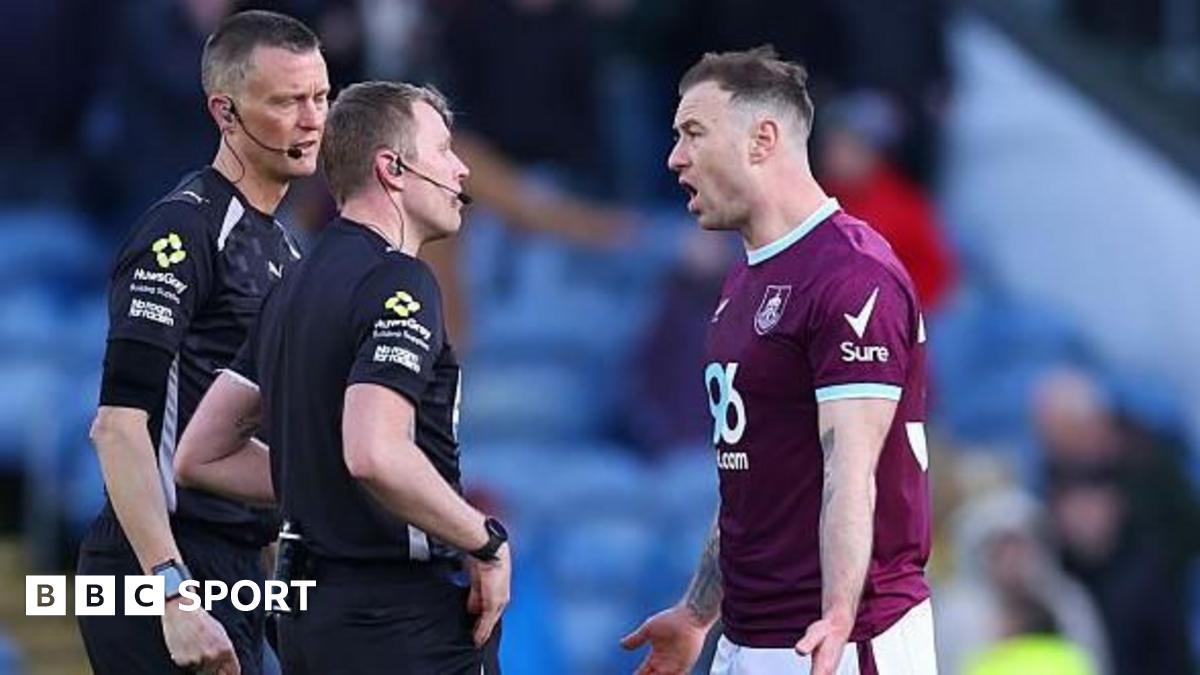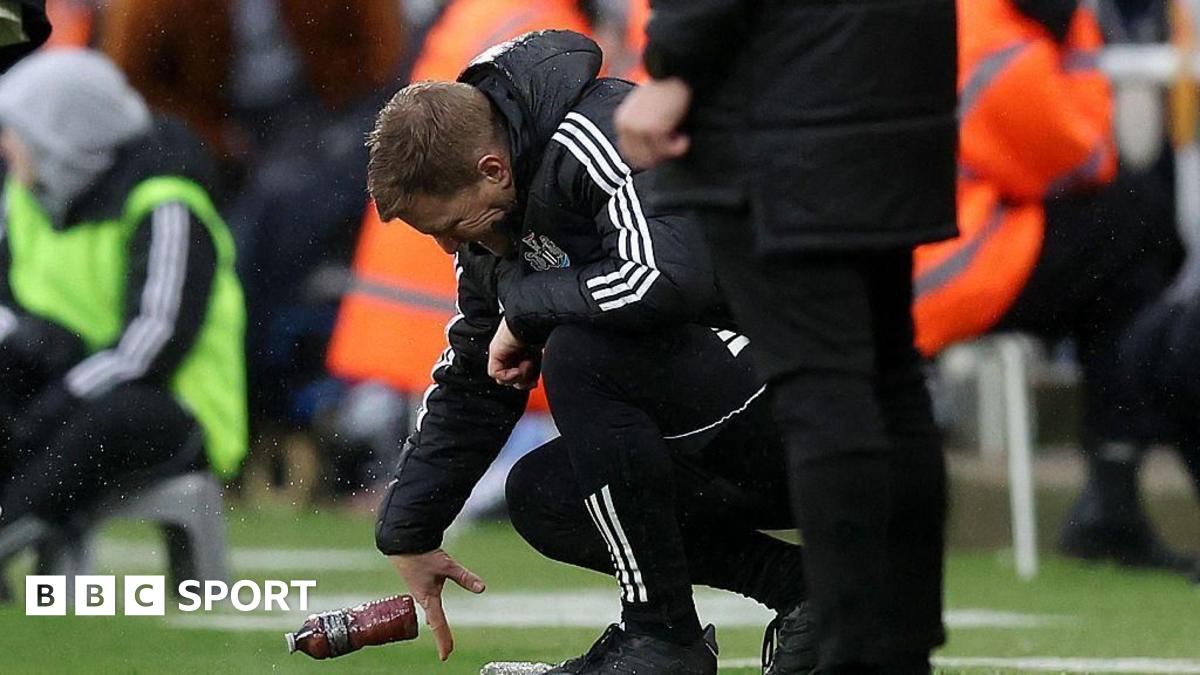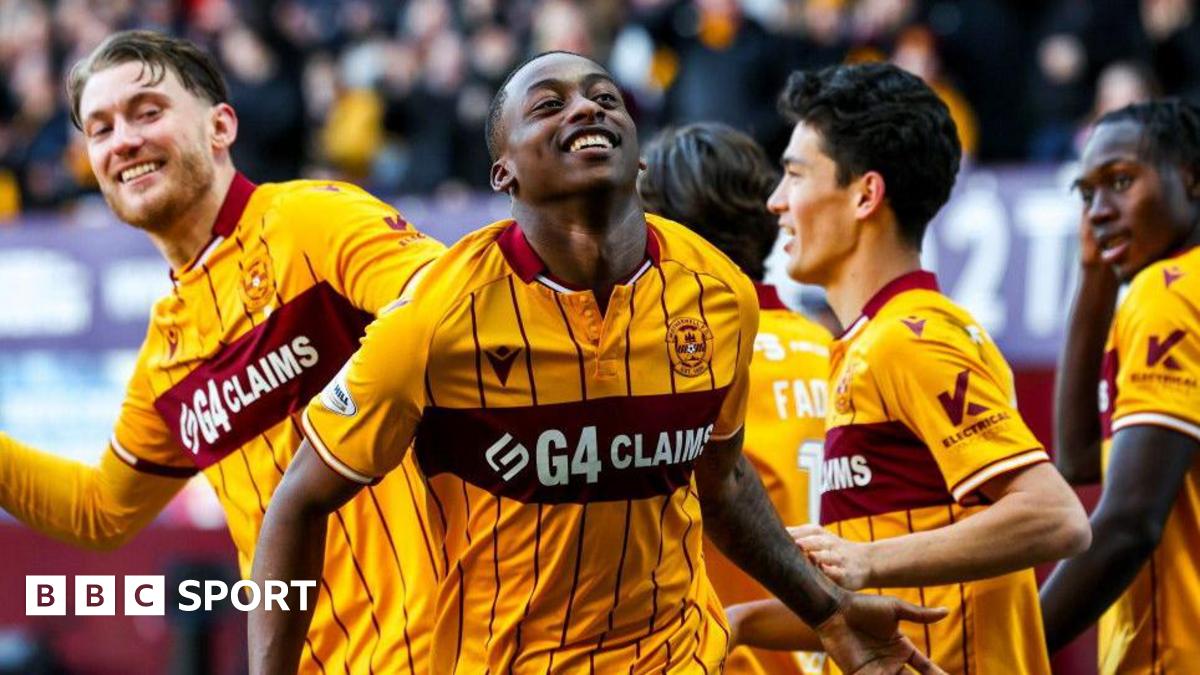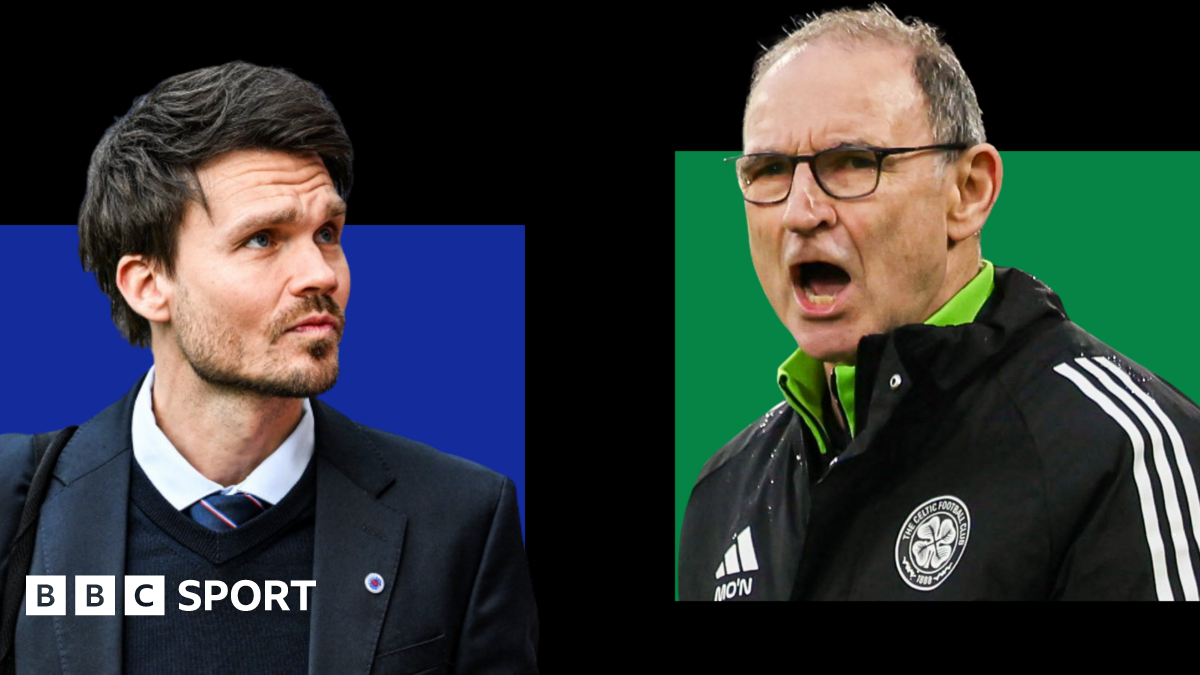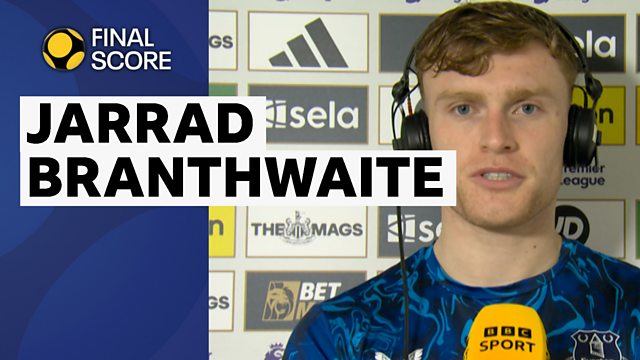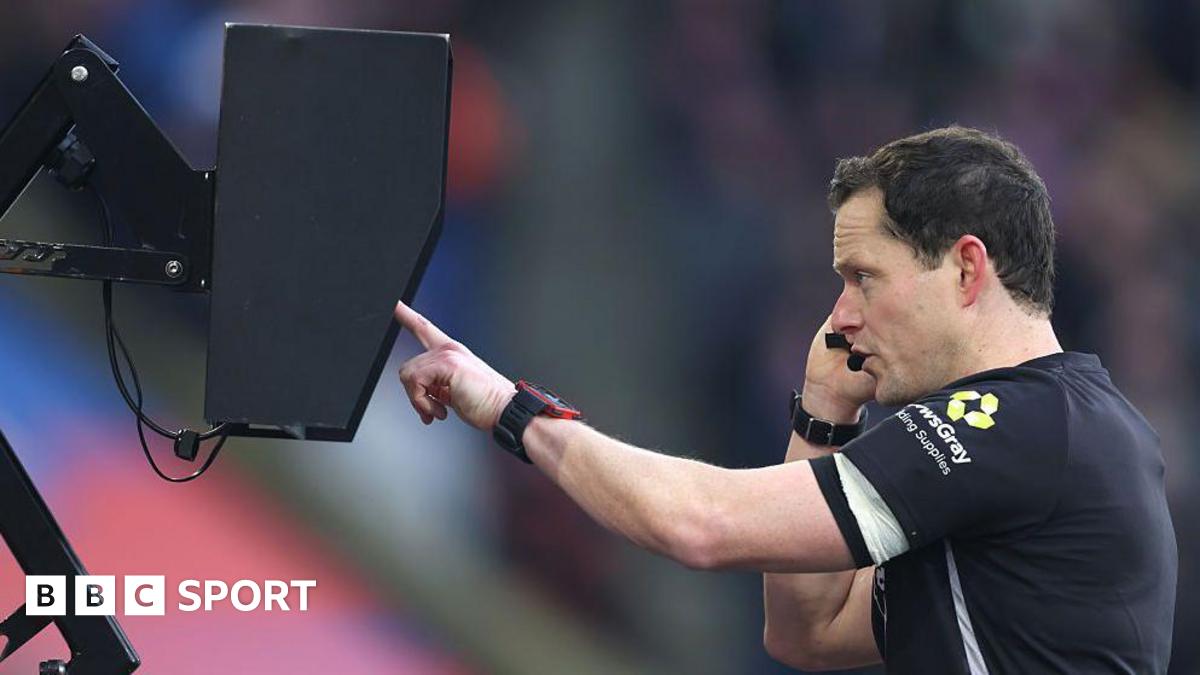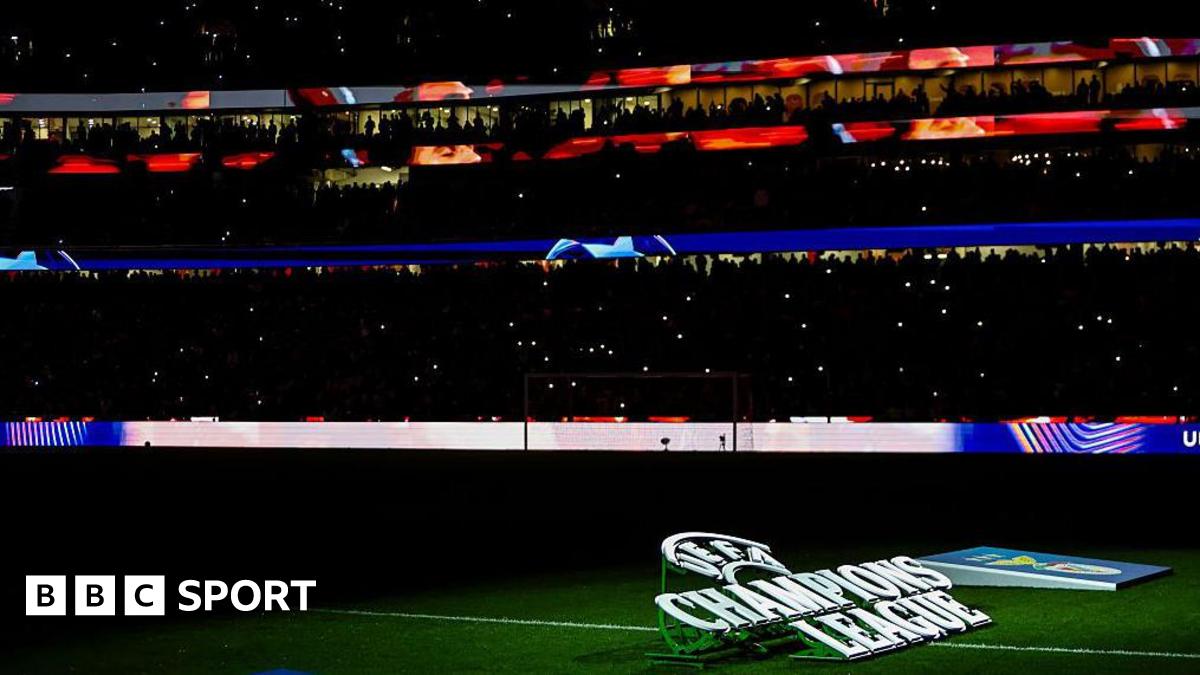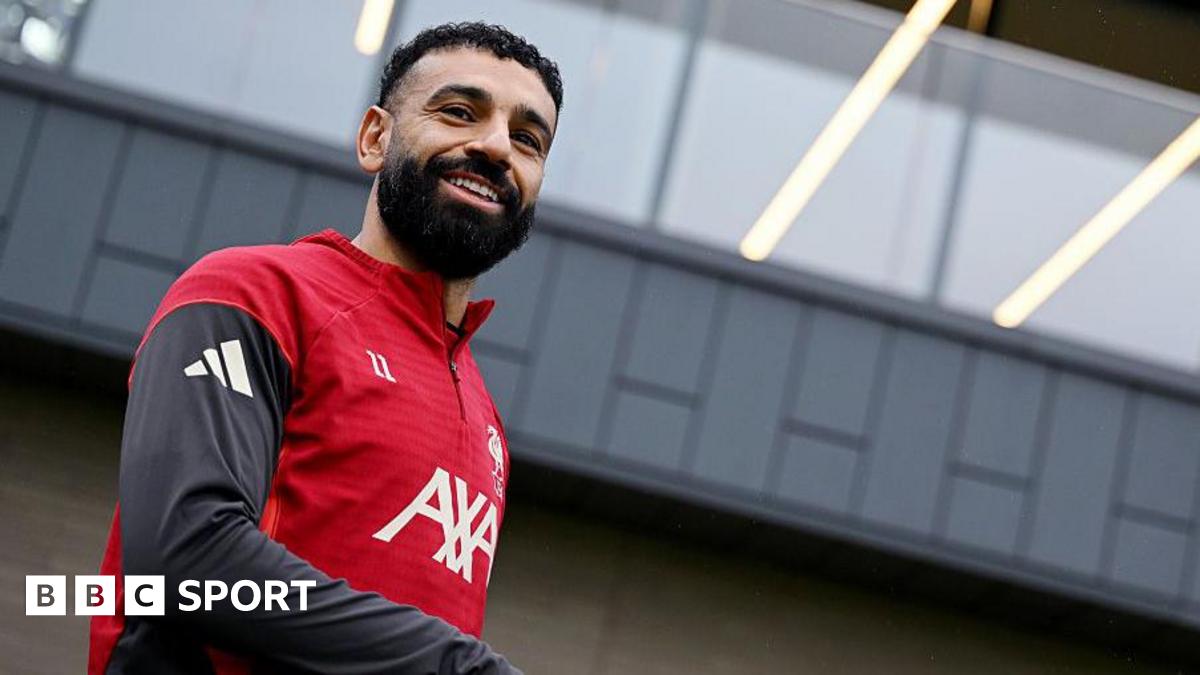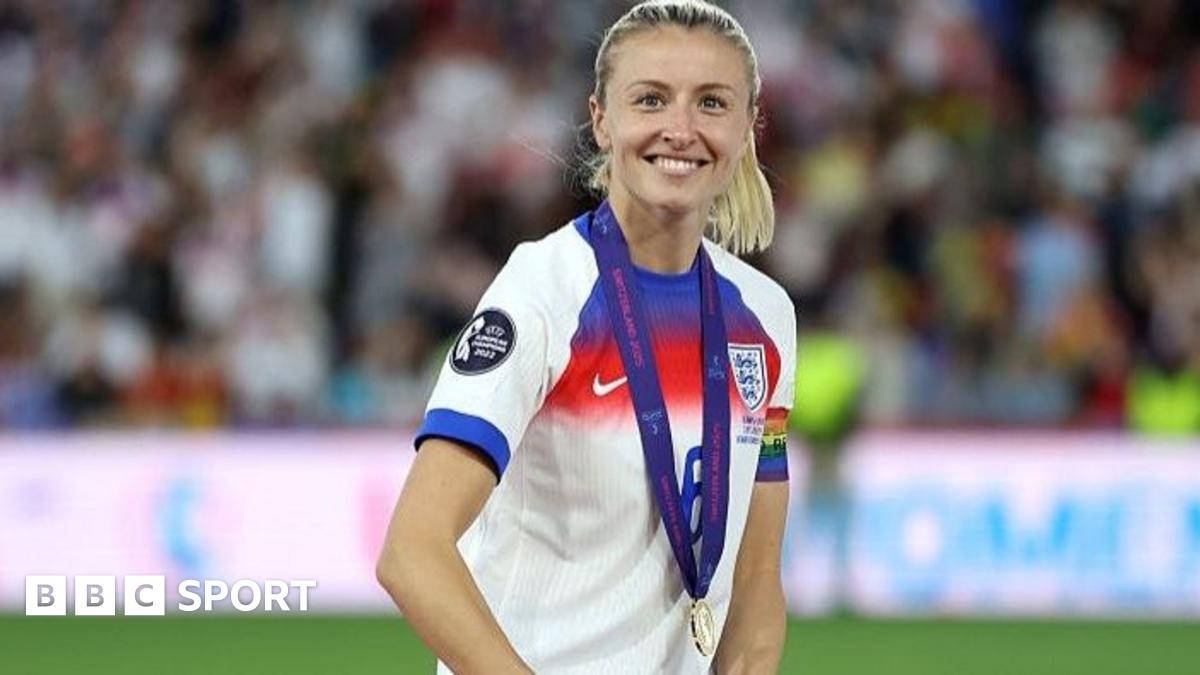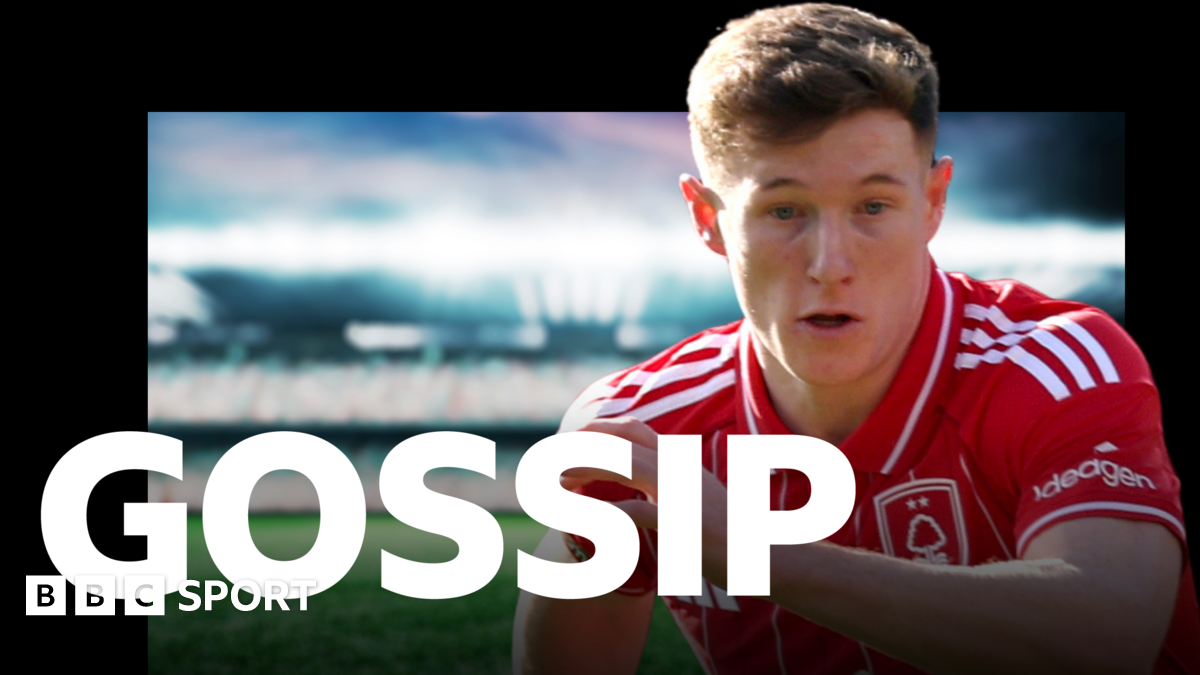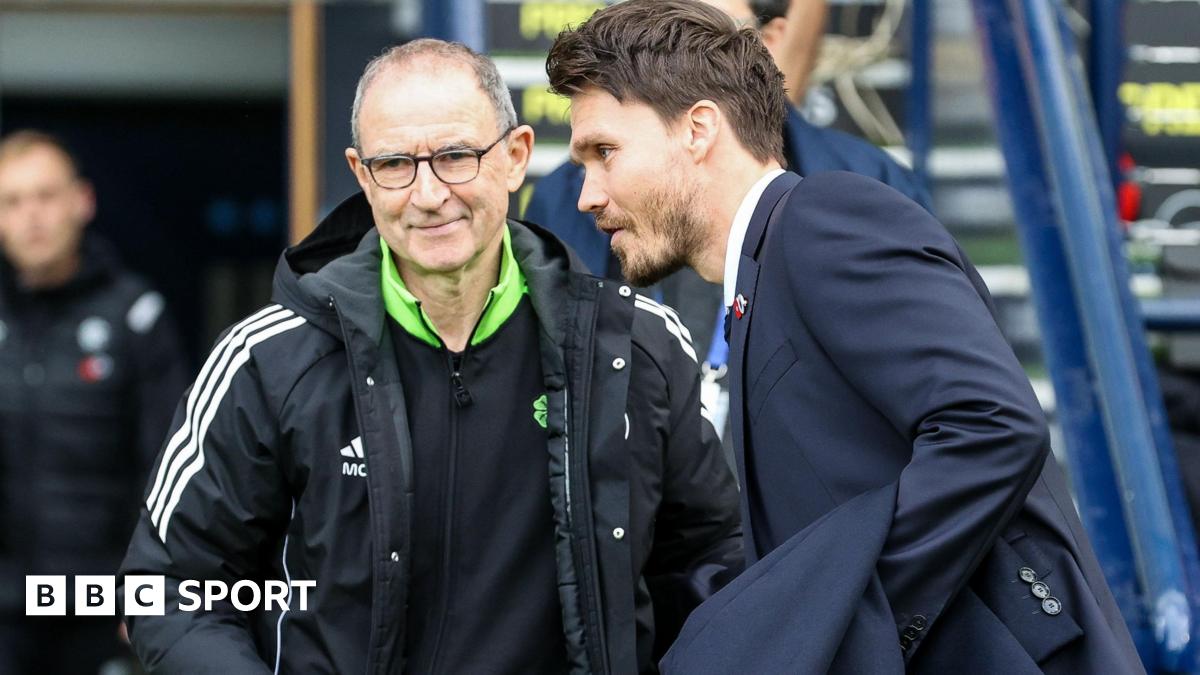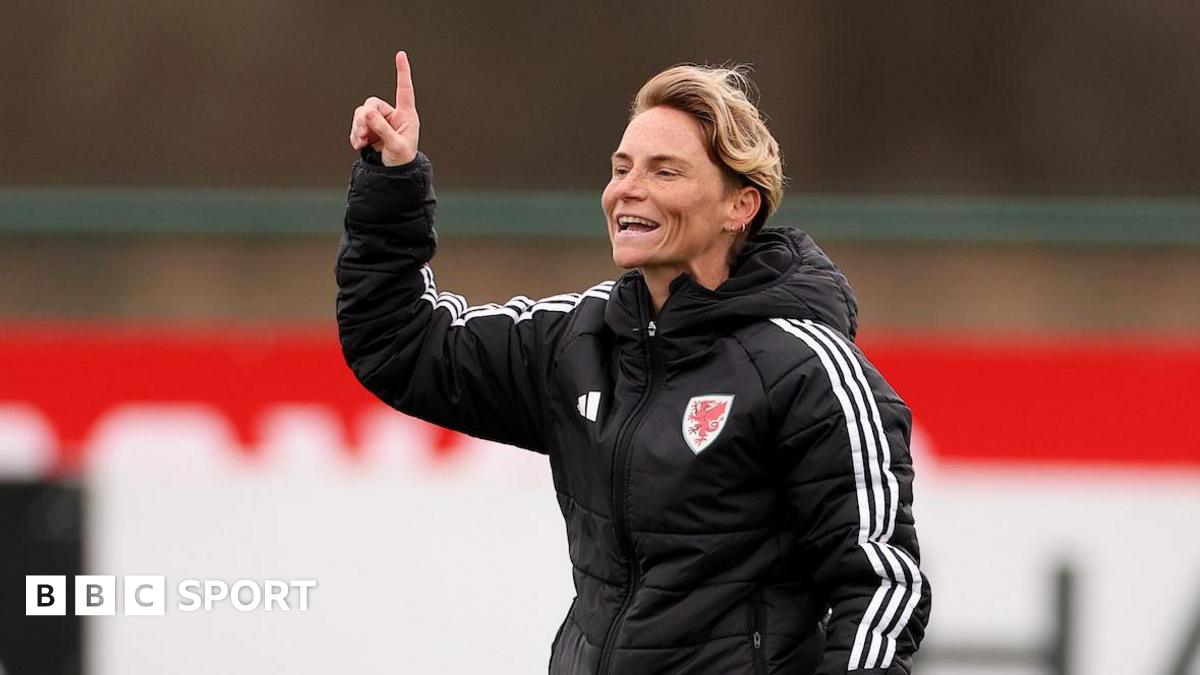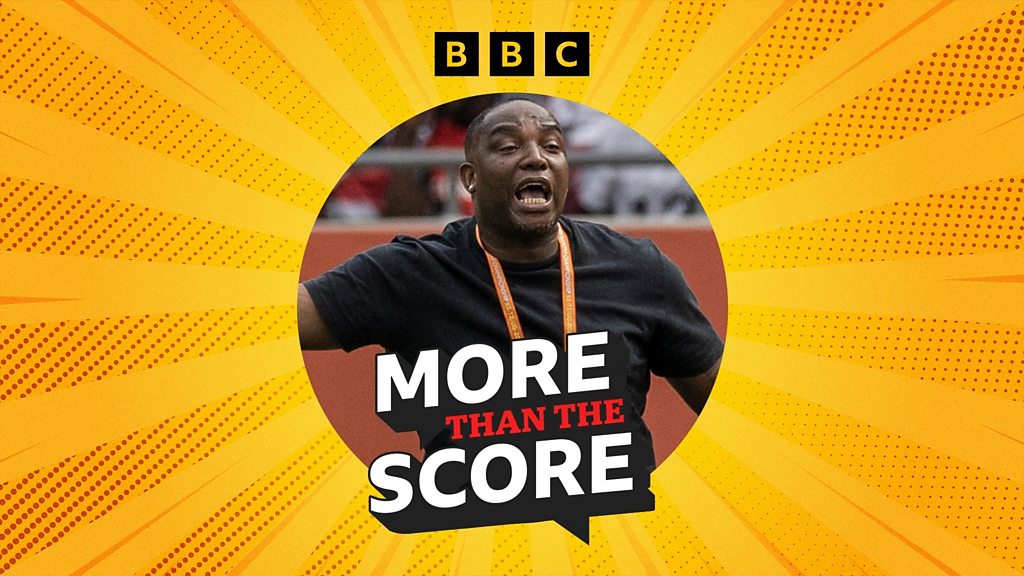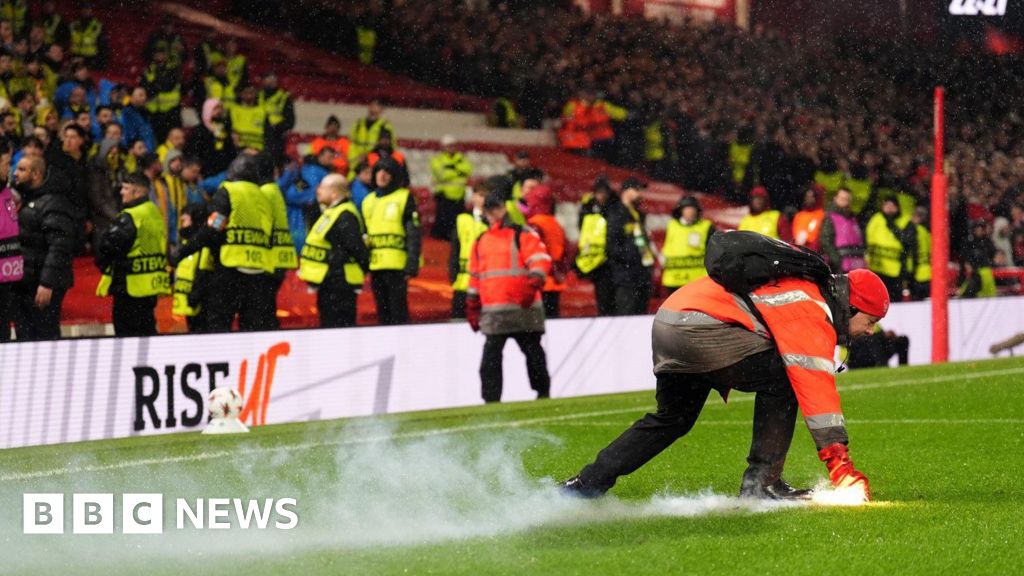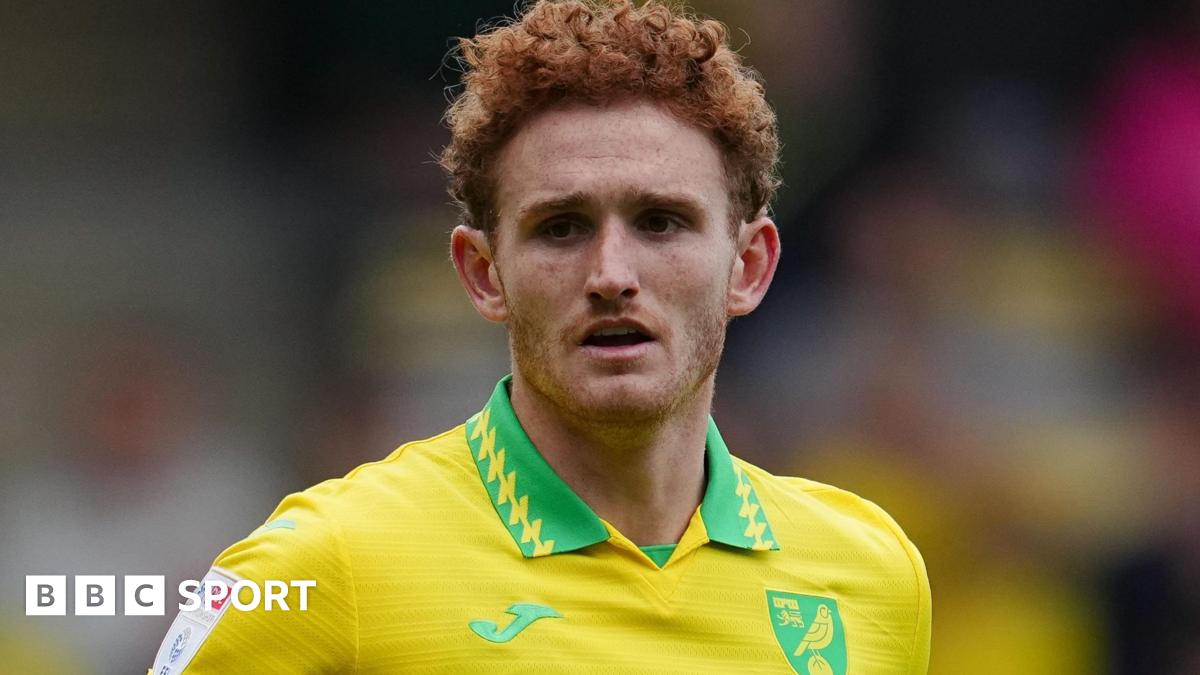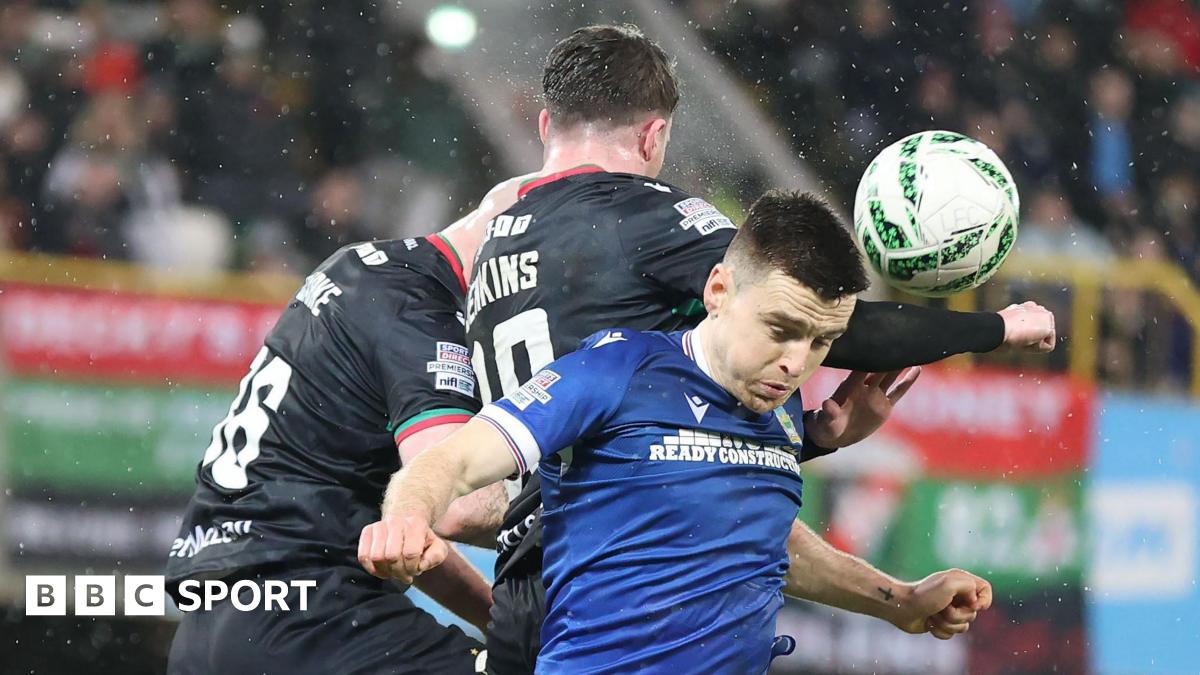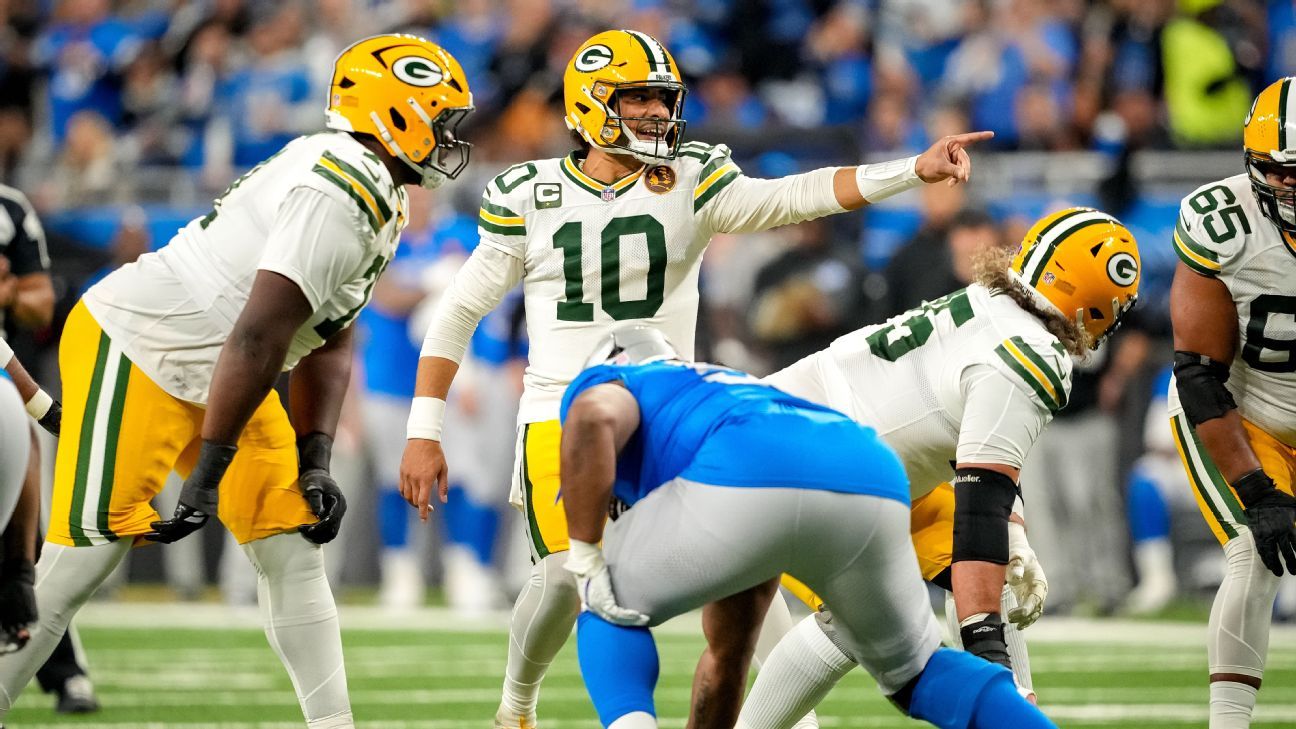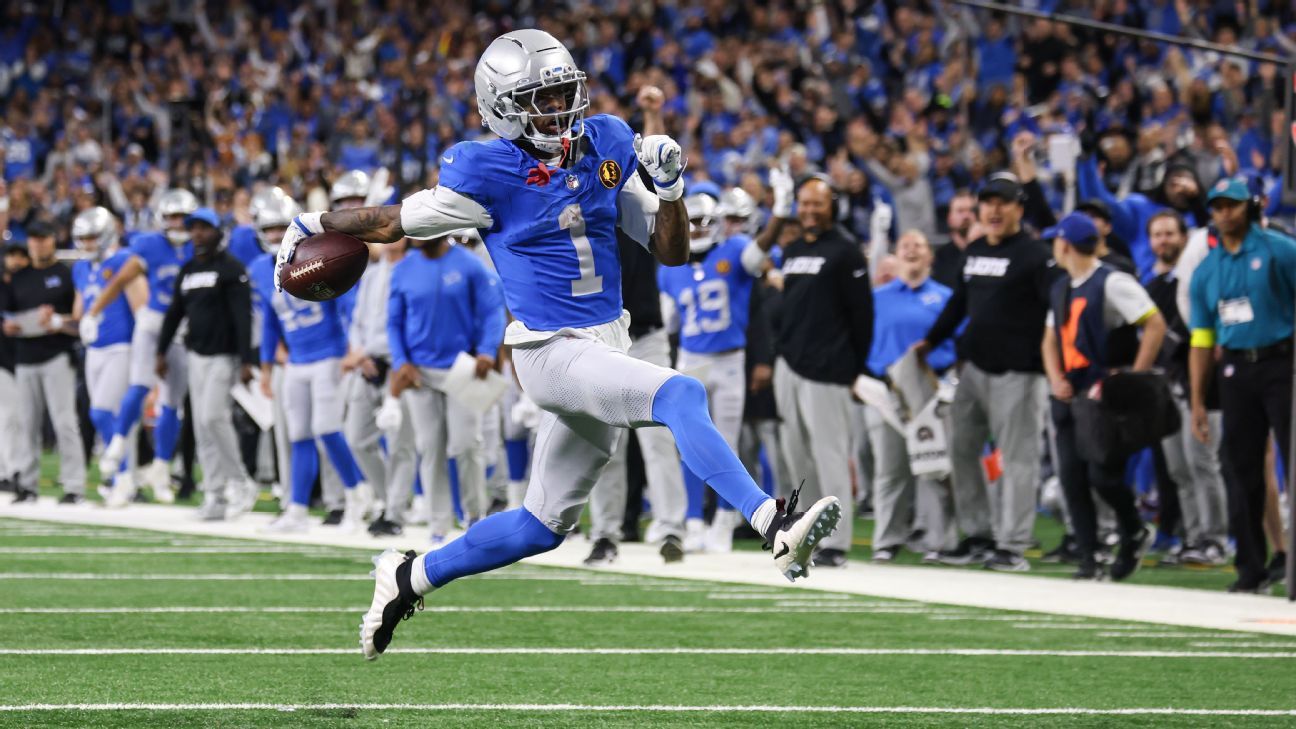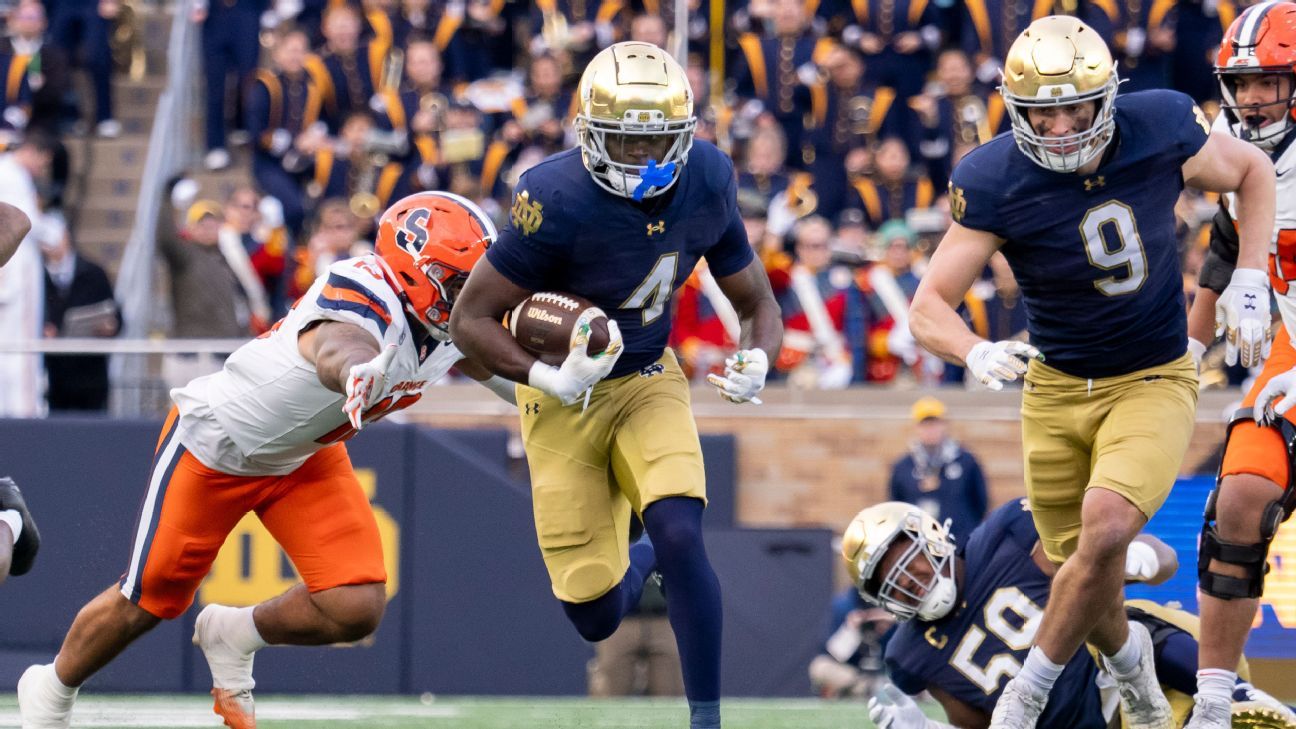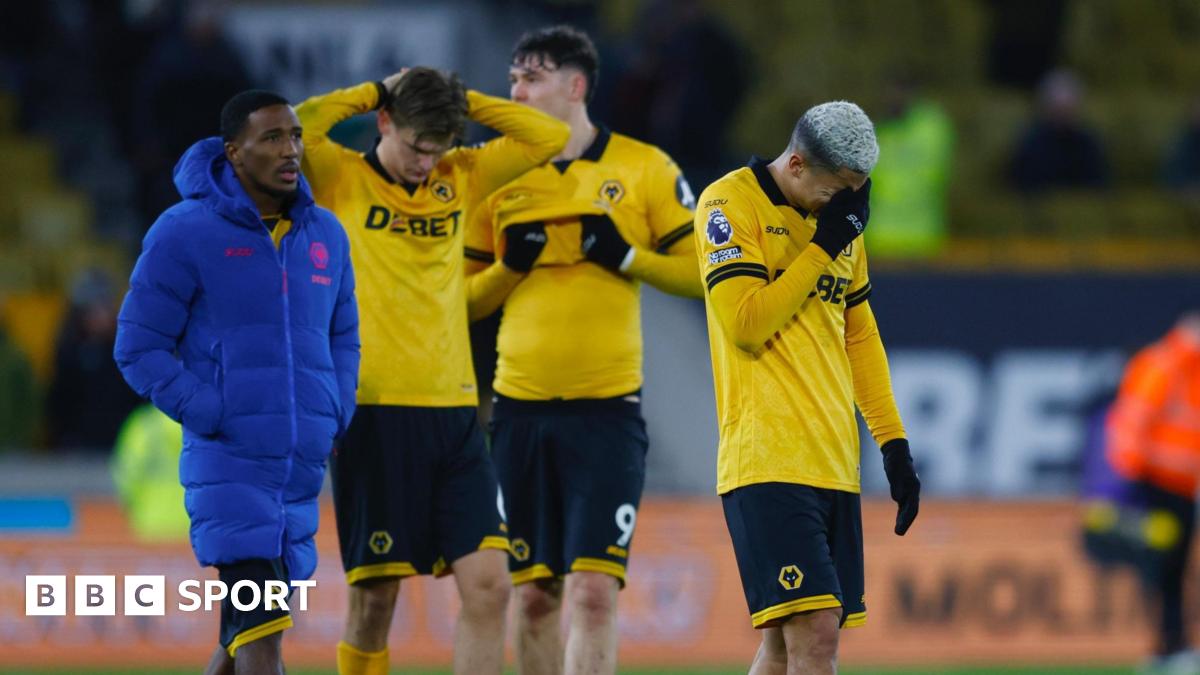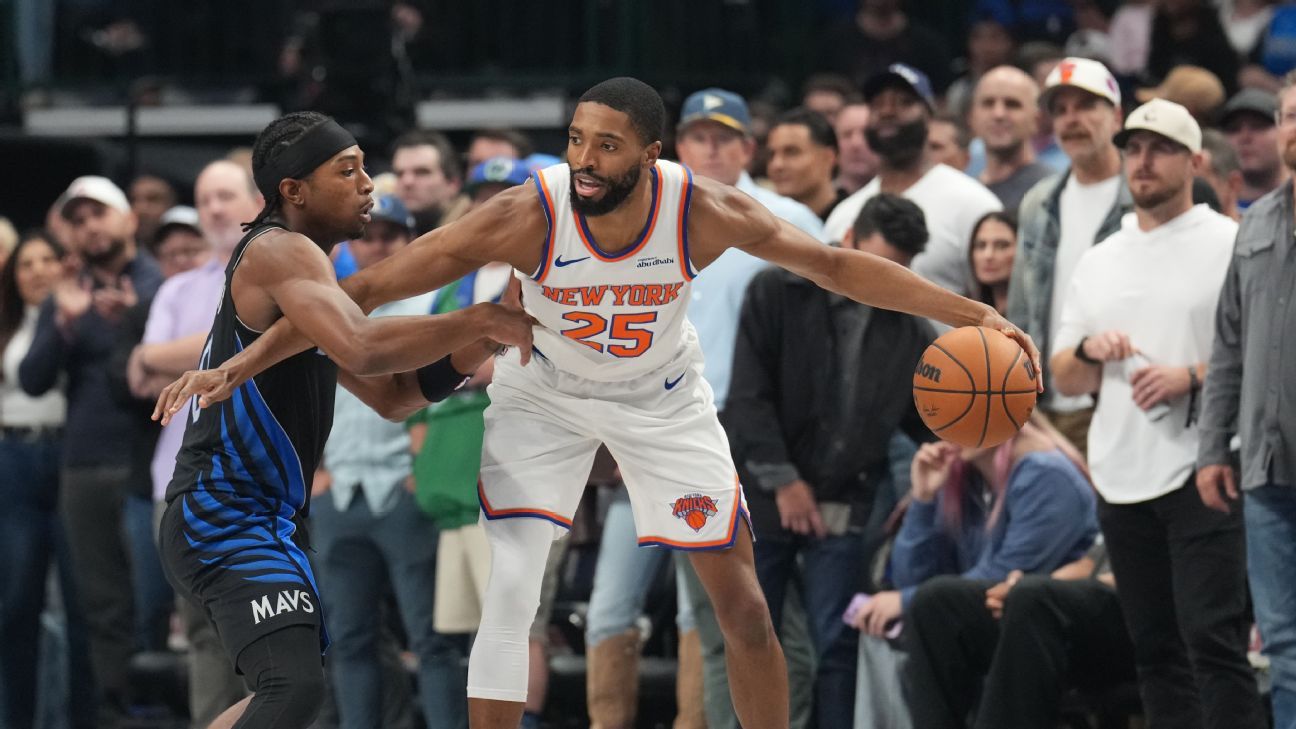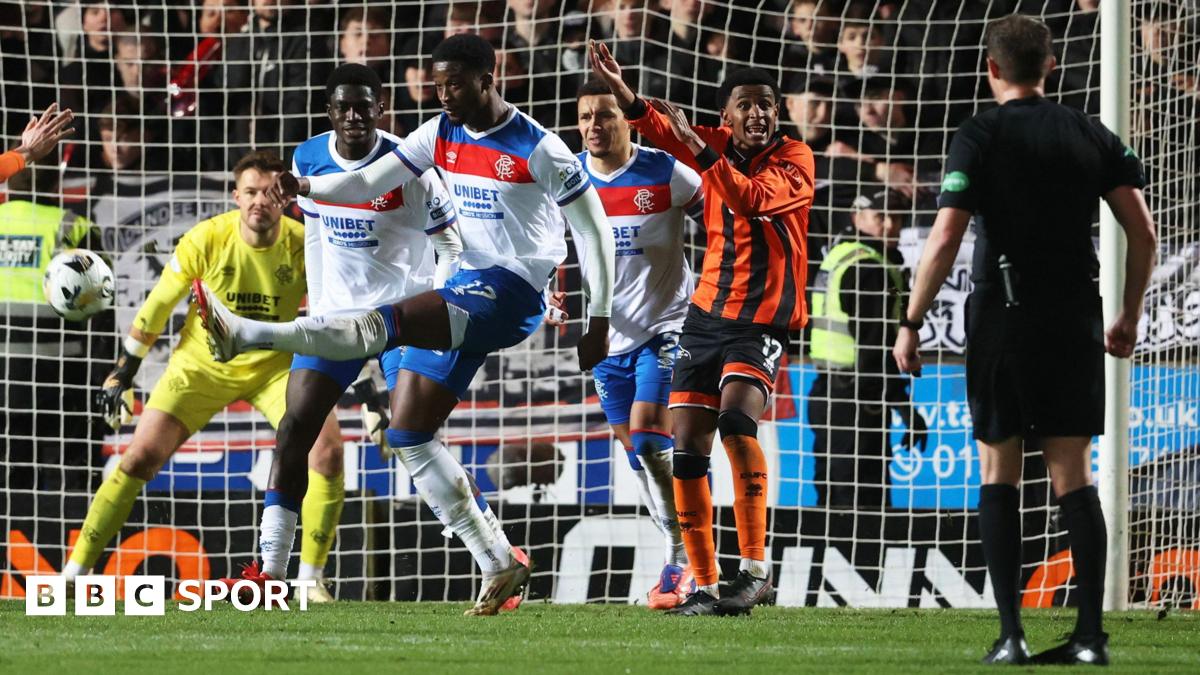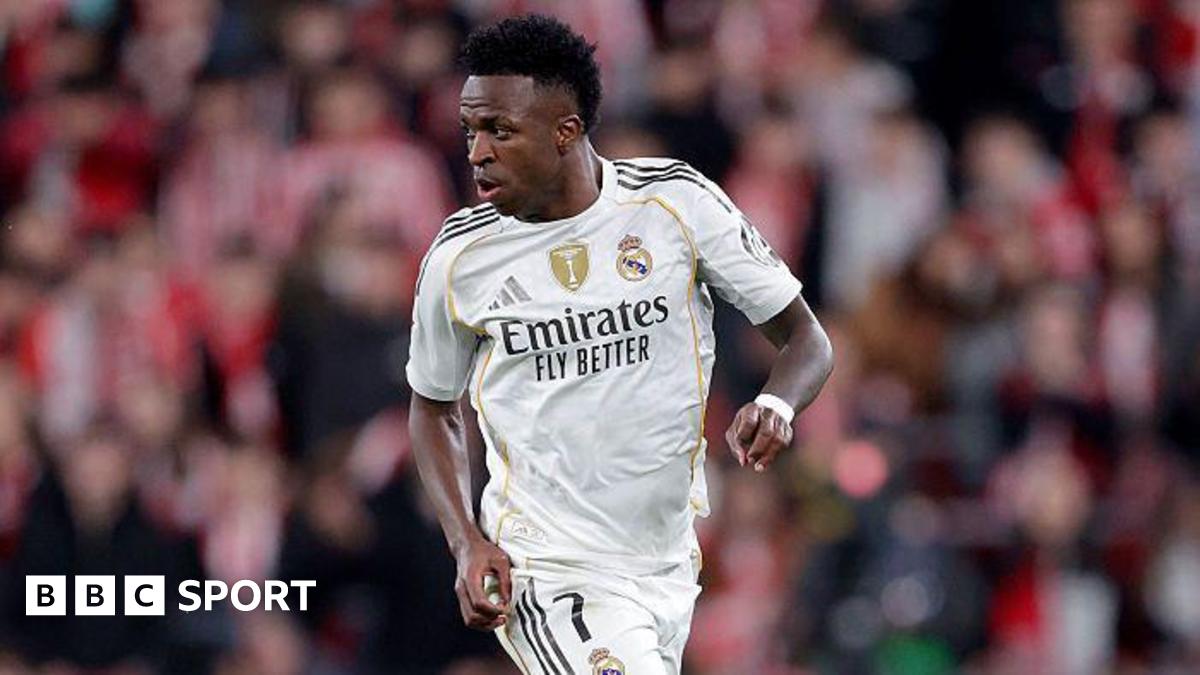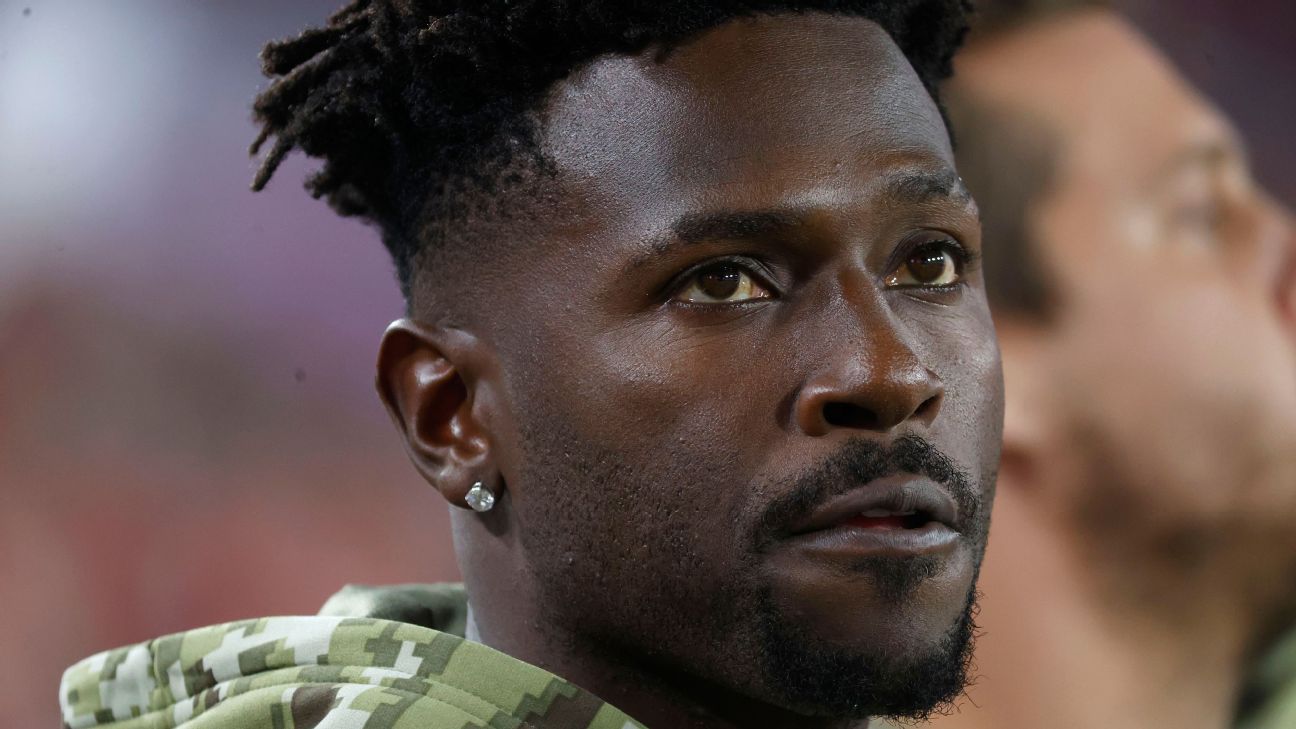The Football Interview is a new series in which the biggest names in sport and entertainment join host Kelly Somers for bold and in-depth conversations about the nation's favourite sport.
We'll explore mindset and motivation, and talk about defining moments, career highs and personal reflections. The Football Interview brings you the person behind the player.
Interviews will drop on Saturdays across BBC iPlayer, BBC Sounds and the BBC Sport website. This week it will be shown on BBC One at midnight GMT (and at 00:30 in Scotland).
Emma Hayes' managerial career is back where it started - in the United States.
And she did not take long to win some silverware - leading the national team to a gold medal at the Paris Olympics just three months after taking charge.
Londoner Hayes, 49, previously helped Chelsea become the dominant force in the Women's Super League - ending her 12-year tenure by guiding the club to a fifth consecutive league title and her seventh overall.
Her next big goal is to steer the US - ranked second in the world behind Spain - to World Cup success in Brazil in 2027.
She sat down with Kelly Somers to talk about her childhood, working in international football, and balancing football with family.
Kelly Somers: You've had an incredible career, but what does football mean to you?
Emma Hayes: It means different things at different stages. The older I get, the more I think about the importance of joy within it, especially when it's your job. You have to always deal with the realities of trying to get a result every week. Enjoy it. That's the reason you loved it, it's the reason you grew up playing, it's the reason you coach. Joy is what it means to me.
I really enjoy it. I've got such vivid memories of the Olympic gold-medal final last summer. I remember looking around the Parc des Princes and thinking, 'does it really get any better than this?' I've worked so hard to be in these positions, the last thing I'm going to do is get uptight about it. Just smile and be grateful for it.
Kelly: What's your earliest memory of football?
Emma: My favourite memories of playing football in the flats. Not just the friendships that were formed but just the types of games. I think there were no bibs, there were no goals and I actually don't think there was that much arguing to be honest. There might have been like 20-a-side. I used to think, 'how did we work out who was on each other's team?'
Kelly: Can you remember the first team you played for?
Emma: It was Mary Ward in Camden. I remember Dad taking a few of the girls from school. We'd had a little school team and he had found this little place in Camden that were growing a reputation for girls' teams and he took a handful of us down there and we merged with this team, Mary Ward. Then we started playing in the best competition ever, which was the Met Police five-a-sides. I wish they still did them because if you made the final it was played at Wembley Arena.
I remember playing at Wembley Arena around the same times (as) John Terry. I know when he was playing with Senrab, they had teams that were making the final. It was amazing.
Kelly: How did they shape you and your journey in football, do you think?
Emma: I think I've always been about the community. I think that's shaped me massively. I know my dad being a coach in the community probably helped with that, but I think always giving back, whatever that looked like, was always maybe central to even my childhood. The most important things are friendships.
Kelly: When did you stop playing?
Emma: I was playing until I'd say around 17 or 18 years old. I had an ankle injury which was a bone-on-bone injury so I lost my cartilage. Now you can do a little more but 35 years ago you couldn't do anything. Just gutted that I couldn't do it. Never ever dreamed that I would be doing what I'm doing today. Never.
Kelly: Did you really think you were going to have a career in football and was there ever anything else or was it always, 'I'm going to be a coach'?
Emma: I didn't even think I'd be a coach. I didn't have role models. There was no professional game to aspire to. I dreamed of being a male player or walking out at Wembley like Glenn Hoddle or someone like that. So it didn't enter my imagination and neither did coaching. I had no interest in coaching whatsoever.
Kelly: How did you find your way into this incredible career then?
Emma: I think a couple of things. My PE teacher always insisted I did leadership courses. Even when I was 16, I wanted to go into a career in diplomacy or something like that but I think probably the university years I did the role of coach - even though I didn't choose it - and then when I left it and I came back to work in Camden for Camden sports development I started really coaching in the community and a few of us had developed or built the Regents Park League.
Then I moved to America. More than anything else, I just wanted to move to America. I didn't necessarily want to be a coach but I knew that got me a visa to get into the country and live in New York City.
Kelly: Who would you say has had the biggest impact on your career?
Emma: It has to be my parents. Dad saw something for me that I couldn't see. He was the biggest feminist I've ever met - as a working-class man. He had three daughters, so one of us had to be into football in a big way. But him, because he pushed me and sometimes I hated it. I was telling Harry the other day when he was playing football... I was stood on the touchline in silence. He said: 'Mummy, why don't you say something to me?' I said: 'Because I hated it when my dad did it to me, so I don't want to do it to you.' And he was really vocal that he actually wanted me to say a little bit more, and I was like: 'OK.'
Kelly: So let me get this right... one of the best coaches in the world, goes to her son's football and you keep quiet...
Emma: I stand on my own and I stay silent.
Kelly: Do you say much to him afterwards?
Emma: Just around joy. Like, they played a game the other day... they lost 10-2. Inside, I was dying. And I got in the car and I was like: 'What did you enjoy about it today?' And he said: 'Oh, I love playing out wide.' I want him to keep that love for as long as possible.
Kelly: You mentioned both parents having such a big impact... your mum as well...
Emma: Mum just encouraged me to do whatever I wanted. She just supported us to go and do it. If I'd say to her, 'Mum, I want to go and work for the UN.' ... 'Oh, you go and do that, love, if you want to.' It was almost like I was given permission to explore and experiment. Being a mum now, I really appreciate her in a million ways. She was such a big part of my life then, but I think she's an even bigger part of my life now since my dad has passed. At this stage of life, I really feel like I really need my mum in a different way. That's why, for me, they're my biggest heroes. She helps me so much, especially with the menopause. Like if I'm having anxiety or things that I know I'm struggling with, she'll say: 'Just get the paper bag out, take a breath and calm your mind.'
Kelly: It feels different when your mum says it, doesn't it?
Emma: I never suffered with anxiety until I had the menopause. What I've learned is that when you lose oestrogen in your body, especially when you have sudden menopause, like I had - I didn't have a gradual menopause, I had a sudden one. I had emergency surgery and when you lose both your ovaries... oestrogen is not just a lubricant in your body for your joints, but also for your brain - what starts to happen is your brain starts going, 'hello, oestrogen, where are you?' And it can't find it. Then you have a decrease in dopamine and serotonin. So your body struggles and has a lot of inability to be able to do it naturally, so your anxiety levels go up. That for me was exacerbated when I had Harry, but it intensified once I had the sudden menopause.
Kelly: You're a football coach. Why is it so important to you to talk about things like that?
Emma: I think as a woman, we have to live our life in football through an entirely male lens and we're different. We think differently, we have different needs, we experience the game differently.
The thing I love most about being in America is they value female sports. I feel like I've had to speak up about it. I did a conference the other day and they were asking about my earliest experiences with biases and they've been shaped from such a young age. Whether it's going on coaching courses where you were the only female, to referees coming over and going straight to your male assistant and thinking they're the head coach. If you spoke out about certain things that people didn't really necessarily view as aggressive behaviour, they didn't realise the position that women might have felt in that situation. My dad always said: 'No, make it better for others even if you have to take the punch in the face.' I think that's sometimes been difficult. Sometimes I'm like, 'why do I put myself in that situation?' Other days I'm like, 'if I can make the path better for someone else then do it.'
Kelly: What was it like in your household growing up?
Emma: It's the same as it is now. My sisters and I live really close to each other - or have always lived really close to each other. And our time together is probably the same way it was when we were kids. My younger sister Rebecca's my manager. She manages me, and my older sister is Harry's travel companion and nanny. That's how close we are. That sounds like a fun job. I would be absolutely nowhere without that support. I would have had to quit this job years ago.
Kelly: I think there is a photo with your mum and Tom Cruise...
Emma: She wasn't shy about it. She was in the box next door in the gold-medal match and he came in and met all my family. And that was the highlight for them, had a photo with them all.
Kelly: Not you winning?!
Emma: They weren't interested in that! Listen, they're English, so they want me to do well but I think their worst nightmare would be USA playing the Lionesses in the World Cup final. I think my mum will have to wear a split shirt.
Kelly: How did your mum feel about you taking the job?
Emma: She was gutted. She was absolutely gutted. First of all, she's mad about Chelsea. She still goes to every game. It was like a break-up for them. They were all devastated at the beginning. Then, of course, they're happy for me.
Kelly: How do you escape from it all?
Emma: I feel like I can in this job. I often describe it as like being a grandparent. You see the players every 6-8 weeks. They come in, they visit you, then give them their treats, take them to Disneyland, they love you, and then, 'see you soon... go back to your parents'.
It is like that because you don't get to manage them every day. They're with their clubs 80-90% of the time. So I feel like I've got a better balance in my life. I'm much more present as a parent because of it and that, for me, is like the most important thing. I think I felt I was failing at that and that kept me awake at night.
Kelly: Tell me one thing about Emma Hayes that might surprise me...
Emma: That I'm really introverted.
Kelly: Is that a lie?!
Emma: Nope. You ask anyone who knows me. I am social because I have to for my job. But going out on a night out with a party of 10, 12, 15 people is my idea of hell. I like one-to-one time and quality interactions. I'm not very sociable.
Kelly: What are you most proud of?
Emma: Harry and being a mum. It is the thing I wanted to be more than anything else. It creates a huge amount of fear and anxiety too, being a parent. Like, it's not even the responsibility part. It's the love that I have for him sometimes paralyses me. Because if I've got to go away on a trip and I'm leaving him, all the anxiety I go through just to get on that plane, just to get there, it can be overwhelming.
That separation, they always talk about it from like, 'oh, that must be really tough for him'. I'm like, 'no, it's really tough for me too'. I feel like somebody's taken my arms and legs off me. I want him next to me. I'm having to deal with that. He's seven now and he's a little more independent and I'm having to encourage those things. At the same time, I'm thinking, 'I don't want you to grow up. I just want you to remain this little being'. That's why the pride of that goes beyond the job. It's a job. I love it but it's just a job.
Ben Haines, Ellen White and Jen Beattie are back for another season of the Women's Football Weekly podcast. New episodes drop every Tuesday on BBC Sounds, plus find interviews and extra content from the Women's Super League and beyond on the Women's Football Weekly feed

 3 months ago
33
3 months ago
33
